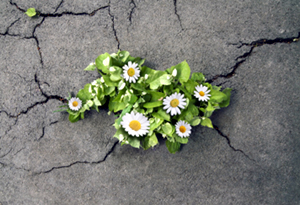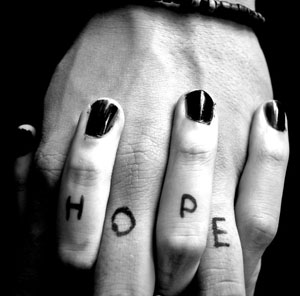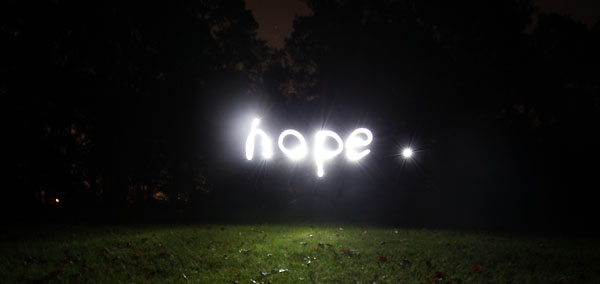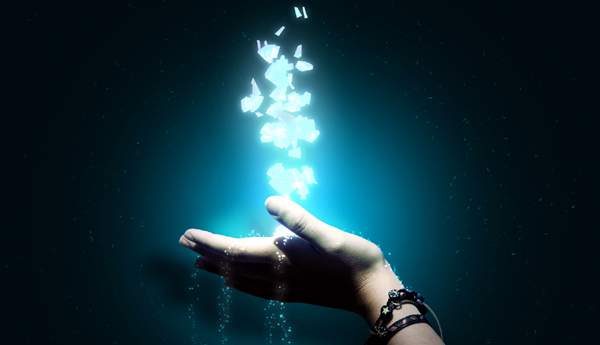On Hope, Hope On
“Everything that is done in the world is done by hope.”
– Martin Luther, Preacher and Reformer
It’s the first day of Acting 101, an elective that I elected purely to graduate college. We sit on mats, sprawled in disarray, in a beautiful wood paneled room—more yoga salon than classroom. The teacher asked her icebreaker, “What do you fear most?” I had another answer swimming around as I thought but was surprised that I answered so honestly upon my turn. “Hope,” I said. There were some shocked mutterings, so I went with my unsaid first choice, “well…and sharks.”
My view of hope has gone from greatest fear to the most important fuel of healthy living, but I can’t say I understand it. Psychology as a whole is still growing in their understanding of it, much like industrial age scientists studied electricity—it happens, it has power, but why and how? Most importantly; How do we harness that power? “The concept of hope has been interwoven with the Western psyche since classical antiquity in both its secular and sacred traditions,” say Phil Magaletta and J.M. Oliver, two prominent hope scientists. “According to the pagan Greek myth, Hope was the last and only good spirit to escape from Pandora’s Box. St. Paul exalted hope as one of the three most fundamental Christian virtues. Dante identified the absence of hope with hell…” (Magaletta and Oliver, 1999, p. 540).
Psychology has been studying hope since the 1950s and “an early stream of literature highlighted the role of hope in human adaptation…it was noted that hopelessness or lack of hope introduced significant risk not only of mental disorders generally but of depression, sociopathy, and suicidal behaviors…” but that having hope predicted consistent levels of wellness, unlike just “thinking positive” which has less consistent results. (Magaletta and Oliver, 1999, p. 540)
“Hope is not just a feel-good emotion,” asserts Dr. Scott Barry Kaufman, Ph.D. armed with a wealth of 21st Century data, “but a dynamic cognitive motivational system…Hope allows people to approach problems with a mindset and strategy-set suitable to success, thereby increasing the chances they will actually accomplish their goals.” (Kaufman, 2011)
The Existence of Hope
“Science is on the side of hope.”
-Dr. Scott Barry Kaufman, Ph.D.
“Hope often gets a bad rap,” Dr. Kaufman concedes. “For some, it conjures up images of a blissfully naïve chump pushing up against a wall with a big smile. That’s a shame. Cutting-edge science shows that hope, at least as defined by psychologists, matters a lot” (Kaufman, 2011). Hope doesn’t just have power, hope itself is a power, and that power has been empirically quantified.
 Hope powers insight as Rebecca Görres at University College Utrecht found that hopeful participants “…were better at making remote associations, generated a higher quantity of ideas, and added more details to their ideas, compared to those who weren’t. Hope powers long term success according to a University of Kansas study since “high hope students…were more likely to have graduated, less likely to be dismissed from school due to bad grades,” and still maintaining a higher GPA six years later. Hope powers performance over all. “Athletes had higher levels of hope than non-athletes” declares the University of Montana, and just “having hope” brought success “beyond training, self-esteem, confidence, and mood” (Kaufman, 2011).
Hope powers insight as Rebecca Görres at University College Utrecht found that hopeful participants “…were better at making remote associations, generated a higher quantity of ideas, and added more details to their ideas, compared to those who weren’t. Hope powers long term success according to a University of Kansas study since “high hope students…were more likely to have graduated, less likely to be dismissed from school due to bad grades,” and still maintaining a higher GPA six years later. Hope powers performance over all. “Athletes had higher levels of hope than non-athletes” declares the University of Montana, and just “having hope” brought success “beyond training, self-esteem, confidence, and mood” (Kaufman, 2011).
Hope’s power is personal and double strength, according to C.R. Snyder, Susie C. Sympson and four other professors who may be the most prominent hope scientists in the world. Their research built the Hope Scale which “has been translated into more than 20 languages.” It states that “…hope is fueled by the perception of successful agency [or] determination in meeting goals in the past, present, and future” and “influenced by the perceived availability of successful pathways related to goals” and “a sense of being able to generate successful plans to meet goals.” (Snyder, Harris et al., 1991, p. 570-571)
Oh. Awesome. Wait, what?
“Put simply,” says Dr. Kaufman (2011), summarizing Snyder’s clinical hope definition in Snyder’s workday terms, “hope involves the will to get there, and different ways to get there.” Workday, powerful hope is made up of your will and your ability to see a way to success.
Our Hope Hostile Environment
“You tried your best and failed miserably. The lesson is: never try.”
– Homer Simpson, the Simpsons
 I believe that the personal nature of hope, based around our perception of our power is one of the main reasons why I feared hope as a college student and why hope can be so overlooked today. As Snyder notes, I was at a point in my life where I felt my will was not strong enough to succeed and I was unsure of my way in life. Also, I was surrounded by some nihilistic cynics who were more than eager to agree that trying was pointless because we never get anywhere anyway. Hope was not small, my thinking was.
I believe that the personal nature of hope, based around our perception of our power is one of the main reasons why I feared hope as a college student and why hope can be so overlooked today. As Snyder notes, I was at a point in my life where I felt my will was not strong enough to succeed and I was unsure of my way in life. Also, I was surrounded by some nihilistic cynics who were more than eager to agree that trying was pointless because we never get anywhere anyway. Hope was not small, my thinking was.
At times I, and my friends—maybe your friends or you right now—were hostile to hope, seeing the hopeful as some “blissfully naïve chump” who doesn’t know what the world’s really like, as Dr. Kaufman (2011) says. I’ve learned that not only is that hostility a response to my believed powerlessness, but also that I’ve confused hope with some other qualities like positive thinking or optimism.
Well, science has also determined that hope is not positive thinking. “In another study, which is hot-off-the-press,” Says Kaufman (2011) Kevin Rand and his colleagues found that hope, but not optimism…”is responsible for greater success, as hopeful students rather than simply optimistic ones trumped their own LSAT scores in law school. “It would appear,” Magaletta and Oliver agree, “…optimism and hope are related but not identical constructs. All are related by the central core of expectancies” but “hope is unique…” because “optimism involves a positive expectancy for future outcomes without regard for one’s personal control over the outcome [but] people with hope have both the will and the pathways necessary to achieve their goals” (1999, p. 540) (Kaufman, 2011).
Building Your Hope
“‘Where there is a will there is a way,’ is an old true saying.
He who resolves upon doing a thing, by that very resolution
often scales the barriers to it, and secures its achievement.
To think we are able…is frequently attainment itself.”
– Samuel Smiles, Scottish Author
 Who do you want to be; hope powered or hope hostile? Well, what kind of life do you want to live? “Hope leads to learning goals,” Kaufman says, “People with learning goals are actively…planning strategies to meet their goals [and building] success across a wide swatch of human life…Those lacking hope, on the other hand, tend to adopt mastery goals. People with mastery goals choose easy tasks that don’t offer a challenge or opportunity for growth. When they fail, they quit. People with mastery goals act helpless, and feel a lack of control over their environment. They don’t believe in their capacity to obtain the kind of future they want. They have no hope.” Does that sound like you right now? It sure sounds like the scared, powerless and helpless-feeling college student I was. I know I hated it. If you hate it, too, the first step is acknowledging that your will—nothing else—has the power to bring you hope.
Who do you want to be; hope powered or hope hostile? Well, what kind of life do you want to live? “Hope leads to learning goals,” Kaufman says, “People with learning goals are actively…planning strategies to meet their goals [and building] success across a wide swatch of human life…Those lacking hope, on the other hand, tend to adopt mastery goals. People with mastery goals choose easy tasks that don’t offer a challenge or opportunity for growth. When they fail, they quit. People with mastery goals act helpless, and feel a lack of control over their environment. They don’t believe in their capacity to obtain the kind of future they want. They have no hope.” Does that sound like you right now? It sure sounds like the scared, powerless and helpless-feeling college student I was. I know I hated it. If you hate it, too, the first step is acknowledging that your will—nothing else—has the power to bring you hope.
“Snyder often referred to hope as a process,” encourage Magaletta and Oliver, and I agree. Simply beginning the process will increase your hope power. A great way to start is to find your own place on Snyder’s Hope Scale. Just click here or at the link below. Scoring is easy. Both your Will score and Ways score are from 3-24, and your total Hope score runs to 48. The higher the score, the more Will, ability to see Ways to succeed and overall Hope you have right now.
The really cool part is that however you choose to enact your will, just noting the action will make you more hopeful. Please don’t think that there’s no place for optimism and positive thinking, just don’t confuse them with getting results alone. Your perceived power, your optimism and your hope, all working together “…each made a significant and unique contribution to the prediction of well-being” but none were stronger than hope (1999, p. 541, p. 548). Optimism will help you see ways to success that you didn’t note before. Having yourself or others list your strengths will increase your view of personal power.
Though we swim with sharks, we need not fear. Your hope is yours, it always has been. The ways to success are there, they always have been. Just take the first step on your way, live hopeful and no shark can stop you.
__________________________________________________
Direct to the Hope Scale:http://www.ppc.sas.upenn.edu/ppquestionnaires.htm
Kaufman, S. (2011) The Will and Ways of Hope. Beautiful Minds. Psychology Today.com. Retrieved from: http://www.psychologytoday.com/blog/beautiful-minds/201112/the-will-and-ways-hope
Magaletta, P. and Oliver, J. (1999) The hope construct, will, and ways: Their relations with self-efficacy, optimism, and general well-being. Journal of Clinical Psychology p. 539–551. Retrieved from: http://onlinelibrary.wiley.com/doi/10.1002/%28SICI%291097-4679%28199905%2955:5%3C539::AID-JCLP2%3E3.0.CO;2-G/abstract
Snyder, CR., et. al. (1991). The will and the ways: Development and validation of an individual difference measure of hope. Journal of Personality and Social Psychology. p. 570-585. Retrieved from: https://enablemob.wustl.edu/OT572D-01/RequiredArticles/Snyder_HopeScale.pdf


